Macro-Finance Salon (No.108): Financing Issues of Non-state enterprises—the present and the future
2018-11-28 IMI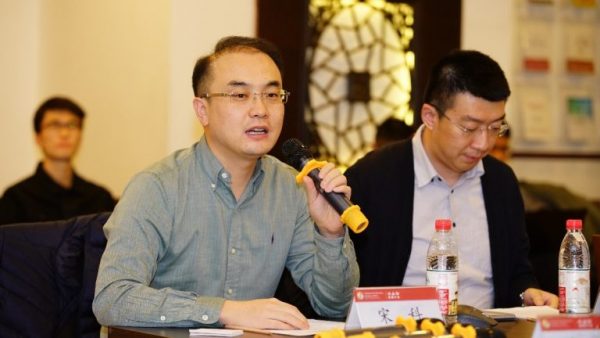 Sun Chao introduced the background for the topic. Over the last three decades, the non-state economy has developed by leaps and bounds, taking an important role in the national economy but its financing difficulties are also reported to the state council and central authorities. In reality, this issue not only undermines the credit of non-state companies but also reflect the challenges regarding strategies, internal management and moral problems in the market economy.
Other guests took turns to deliver their speeches. Wu Ge pointed out that the price increase and the volume reduction of non-state sector and micro and small businesses become prominent since the 4th quarter of 2017. He explained that that’s due to overall drop in volume and the structural contradictions. He noted that if all the capital return to the balance sheet and overall currency supply is increased, the financing problems would be alleviated.
Sun Chao introduced the background for the topic. Over the last three decades, the non-state economy has developed by leaps and bounds, taking an important role in the national economy but its financing difficulties are also reported to the state council and central authorities. In reality, this issue not only undermines the credit of non-state companies but also reflect the challenges regarding strategies, internal management and moral problems in the market economy.
Other guests took turns to deliver their speeches. Wu Ge pointed out that the price increase and the volume reduction of non-state sector and micro and small businesses become prominent since the 4th quarter of 2017. He explained that that’s due to overall drop in volume and the structural contradictions. He noted that if all the capital return to the balance sheet and overall currency supply is increased, the financing problems would be alleviated.
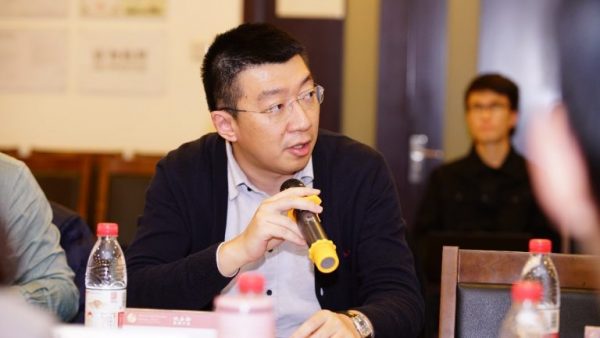 Xia Le believed that financing difficulties could be related with trade frictions caused by the trade war, the shrinking state sector, long-standing extensive management of non-state enterprises, inadequate supply-side reform. He also pointed out that the inclusive finance system and targeted RRR cuts appear to be working and they could be implemented thoroughly.
Xia Le believed that financing difficulties could be related with trade frictions caused by the trade war, the shrinking state sector, long-standing extensive management of non-state enterprises, inadequate supply-side reform. He also pointed out that the inclusive finance system and targeted RRR cuts appear to be working and they could be implemented thoroughly.
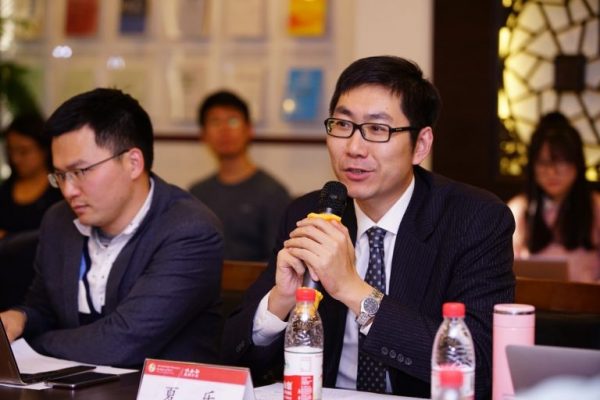 Yin Ruizhe then gave a speech on the current financing environment, citing the example of the Bond market cycle. He analyzed the financing conundrum faced by non-state enterprises, the risk conduction and policy misinterpretation. Due to frequent support policies towards non-state companies and the spill-over demand, the market has shown a renewed confidence in the non-state enterprises but it will take more time for policies to take effect.
Yin Ruizhe then gave a speech on the current financing environment, citing the example of the Bond market cycle. He analyzed the financing conundrum faced by non-state enterprises, the risk conduction and policy misinterpretation. Due to frequent support policies towards non-state companies and the spill-over demand, the market has shown a renewed confidence in the non-state enterprises but it will take more time for policies to take effect.
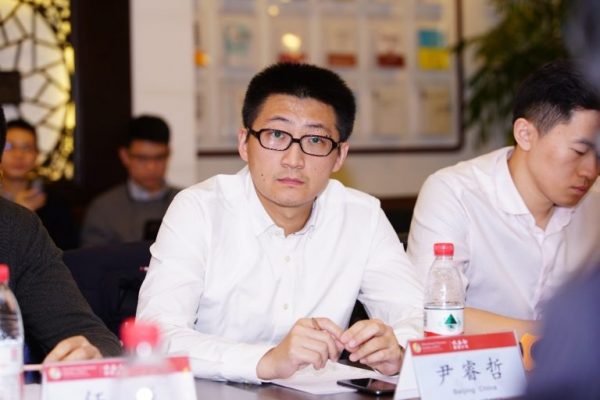 Su Li believed that the financing difficulties of non-state enterprises are not unique to China. Historically or globally, non-state companies are faced with big or small financing difficulties, which is closely related to the economic cycle and macro-economic environment. She noted that the current bail-out measures and risk mitigation tools are showing results. In terms of the financing source, a more diversified investment structure should be established.
Su Li believed that the financing difficulties of non-state enterprises are not unique to China. Historically or globally, non-state companies are faced with big or small financing difficulties, which is closely related to the economic cycle and macro-economic environment. She noted that the current bail-out measures and risk mitigation tools are showing results. In terms of the financing source, a more diversified investment structure should be established.
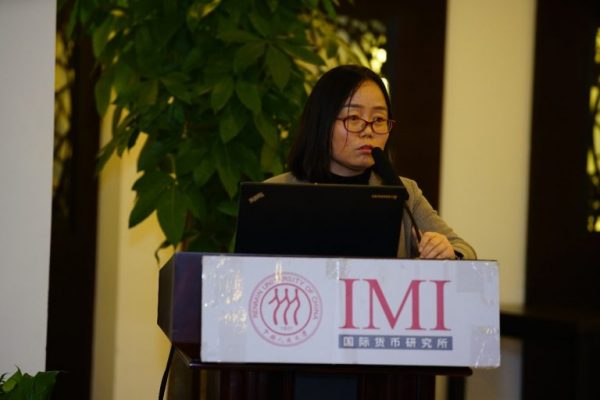 Liao Zhiming pointed out that non-state enterprise should be cautious with financing. Judging from the experience of other countries, as the economy transforms and the becomes less reliant on investment, financing growth will inevitably slow down. The financing difficulties of non-state enterprises can be attributed to internal and external factors, such as the poor management and rising labor cost, etc. Thus, government should give policy support to them. Chen Xiaoliang gave a keynote speech, stating that financing difficulties for SMEs are a common problem worldwide but China is somewhat unique in this respect. He analyzed the reason for financing problems of SMEs based on the policy effectiveness. He asserted that the current policies alleviated the financing problems to a certain extent, but the fundamental solution is to marketize the interest rates and enhance the ability of independent innovation of enterprises.
Liao Zhiming pointed out that non-state enterprise should be cautious with financing. Judging from the experience of other countries, as the economy transforms and the becomes less reliant on investment, financing growth will inevitably slow down. The financing difficulties of non-state enterprises can be attributed to internal and external factors, such as the poor management and rising labor cost, etc. Thus, government should give policy support to them. Chen Xiaoliang gave a keynote speech, stating that financing difficulties for SMEs are a common problem worldwide but China is somewhat unique in this respect. He analyzed the reason for financing problems of SMEs based on the policy effectiveness. He asserted that the current policies alleviated the financing problems to a certain extent, but the fundamental solution is to marketize the interest rates and enhance the ability of independent innovation of enterprises.
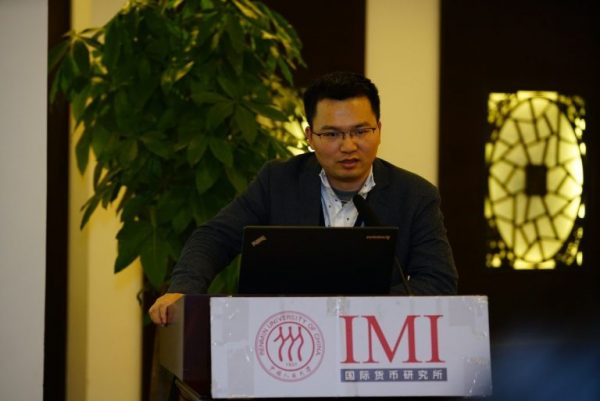 Subsequently, the keynote speakers and seminar guests discussed many issues, including the status quo of non-state enterprises’ financing in capital market and bank credit financing, the reasons for the mounting liquidity pressure since 2001, the current financing environment, the effectiveness of the government's policy support, how to identify top enterprises and how to manage enterprises that escape debts intentionally, how to support private enterprises to liquidize assets, how to improve liquidity and optimize the financing environment, how to effectively supervise and deal with some poorly operated non-state enterprises which are reluctant to pay off debts, how to leverage the national financing guarantee fund system and how the Chinese financial system should be reformed to meet the current economic development needs.
Subsequently, the keynote speakers and seminar guests discussed many issues, including the status quo of non-state enterprises’ financing in capital market and bank credit financing, the reasons for the mounting liquidity pressure since 2001, the current financing environment, the effectiveness of the government's policy support, how to identify top enterprises and how to manage enterprises that escape debts intentionally, how to support private enterprises to liquidize assets, how to improve liquidity and optimize the financing environment, how to effectively supervise and deal with some poorly operated non-state enterprises which are reluctant to pay off debts, how to leverage the national financing guarantee fund system and how the Chinese financial system should be reformed to meet the current economic development needs.
 Macro-Finance Salon, a high-level academic salon jointly organized by IMI and the School of Finance of Renmin University of China, has four series, namely Policy Experts, Academic Experts, Top Talents and Young Scholars. Based on China’s practice and following the latest international trends, the Salon is a high-level, specialized and open academic exchange platform that facilitates policy and strategy studies, the “Micro-Finance” discipline building in the new era and the implementation of macro-financial theory.
The concept “Macro-Finance” is derived from Prof. Huang Da’s notion of combining the macro and micro financial theories and it is in line with the approach of treating finance and the real economy as a whole. Chen Yulu, the deputy governor of PBoC, explained the concept and its methodology in his book A General Theory of Macrofinance and created the theoretical framework and empirical basis for the “Micro-Finance” system whose development is conducive to China’s long-term economic growth and the national competitiveness.
Macro-Finance Salon, a high-level academic salon jointly organized by IMI and the School of Finance of Renmin University of China, has four series, namely Policy Experts, Academic Experts, Top Talents and Young Scholars. Based on China’s practice and following the latest international trends, the Salon is a high-level, specialized and open academic exchange platform that facilitates policy and strategy studies, the “Micro-Finance” discipline building in the new era and the implementation of macro-financial theory.
The concept “Macro-Finance” is derived from Prof. Huang Da’s notion of combining the macro and micro financial theories and it is in line with the approach of treating finance and the real economy as a whole. Chen Yulu, the deputy governor of PBoC, explained the concept and its methodology in his book A General Theory of Macrofinance and created the theoretical framework and empirical basis for the “Micro-Finance” system whose development is conducive to China’s long-term economic growth and the national competitiveness.
